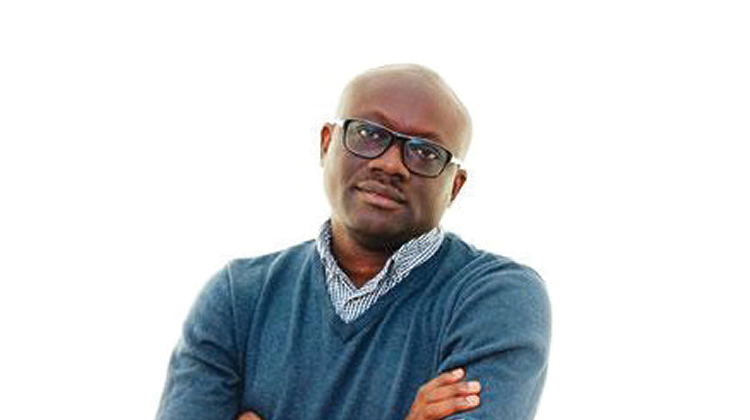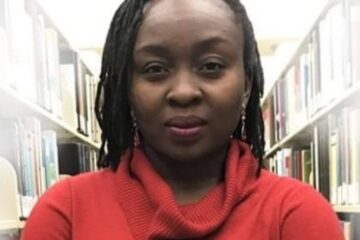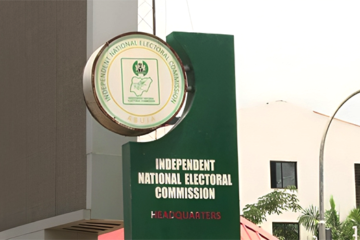The Nigeria I love to see [OPINION]

Simon Kolawole
By Simon Kolawole
Just when you are tempted to give up on Nigeria, something happens and your hope survives another brutal assault yet again. The incident involving Hon. Alex Mascot Ikwechegh has once more assured me that Nigeria is not a lost case. We know what is right, even if we fail to do it. We know what is wrong, even if we fail to condemn it. Above all, we can still speak with one voice when we experience a common affliction — regardless of our differences. I have, many times, been on the verge of giving up on Nigeria whenever I see hate-filled exchanges on social media, but something happens and I tell myself: relax, boy, this is not exactly who we are; this is just social media cruise.
A recap. Ikwechegh, a member of the house of reps (Abia north and south), assaulted Mr Stephen Abuwatseya, a cab driver, for refusing to deliver a consignment of “snails” to his living room. Abuwatseya had asked him to come outside to receive it, as it is done everywhere in the world. Ikwechegh, a typically Nigerian “big man”, felt disrespected. He phoned the “snail” seller to complain about the “stupid idiot”. He then added, ominously: “Can you imagine this rat? I can make this man disappear in the whole of Nigeria and nothing would happen.” It was not a threat: many Nigerians are regularly “disappeared” by big men and, usually, nothing happens. It is the height of impunity.
Ikwechegh then said what many Nigerians, particularly big men (and women), love to say: “Do you know who I am?” Who are you? Are you God? Grandstanding is Nigerian culture. Ikwechegh is a just mascot for this. Even girlfriends/boyfriends of politicians who go around town with police protection will ask you: “Do you know who I am?” Ikwechegh issued another threat: “I will slap the hell out of you, lie you down, and lock you in my generator house.” Like I wrote in my previous article, for the typical Nigerian politician, “power is a licence to become a deity, to amass and flaunt obscene wealth in the midst of wretched poverty, and to deploy raw state power to oppress or suppress others”.
Abuwatseya made it known that the lawmaker/lawbreaker was on video and started commentating on the triple slap. Ikwechegh got up and arrogantly introduced himself as “Honourable (indeed) Alex Ikwechegh, a member of the house of representatives” — in case viewers harboured any doubts about his monumentality. The mascot of a man dared Abuwatseya to call the inspector-general of police. He knew what he was doing. If you report a big man to police in Nigeria, you are kidding. There is no crime big people commit that a phone call cannot wash off. In fact, by special arrangement, the complainant can become the defendant. The subject will become the predicate.
When the video of the encounter got to social media, I was happy and worried at the same time. I was happy that there is video evidence. I was happy that this would draw the attention of activists and the authorities. That is the good that comes with the age of social media. Gone are the days when evidence is difficult to produce and it would be “my word against yours”. Despite the risk of manipulation and AI, video evidence is very much valuable because it can be verified and subjected to forensic analysis. When I saw the video, I did not need any special skill to know it would go viral, draw the ire of Nigerians and produce some response — even if cosmetic — from the authorities.
But I was worried at the same time. I felt this might be another golden opportunity for the social media thugs to ramp up hate exchanges, usually along ethnic lines. It happens all the time. A matter that is unrelated to race or religion can be twisted by the merchants of malice to propagate bigotry and bile. It has become a favourite pastime for those in the dirty corners of social media. It gives them a sense of fulfilment in life. I was afraid that Ikwechegh, being Igbo, would draw ethnic slurs and another war would erupt in the cyberspace, obscuring the real issue of abuse of power and privilege that ails the country. I initially avoided going on social media but I later manned up.
To my delight, the Ikwechegh affair did not follow the rule. It deviated from the predictable pattern. What I saw was collective anger. It is not impossible that the bigots still had their say, but they must have been so consigned to oblivion that they did not trend. Once again, I saw Nigerians demonstrate what I have always believed: that our core problem is not ethnicity, religion or region — contrary to what we have been manipulated and brainwashed to believe. Our problems cut across the divides. We live in an unequal society where members of the ruling class lord it over us. And rather than confront them, we are so often distracted by politics that we end up confronting each other.
In reality, we live in a country where there are two countries — the one for the powerful and the power-drunk; and the other for the others. It is a case of “we and they”. No matter their ethnic and religious differences, they enjoy similar privileges: state power and the treasury are at their beck and call, so they can go to Canada on “self-sponsored” trip to study the legislature in a parliamentary system, even though Nigeria practises presidentialism. No matter our ethnic and religious differences, we suffer from similar afflictions: abuse of power, poverty, unemployment, bad roads, bad schools, neglected hospitals, lack of clean water, insecurity, and other things that define misrule.
We are plagued by waste and corruption in every region, but, somehow, we have been brainwashed to think that our problem is because someone is Hausa or Igbo or Yoruba, Muslim or Christian, southerner or northerner. Our brains have been politically engineered to believe that one part of the country is the problem of the other. We are blind to the realities we face every day on our streets and in our local governments, state legislative constituencies, federal constituencies, senatorial districts, states and zones. At election times, we often queue behind “our sons”, “our daughters” and “our brethren” — which is certainly not a crime — but do we hold them accountable afterwards?
I can go on from state to state and zone to zone to show how ethnic champions use power and state resources for personal benefit while taking full advantage of the sectional sentiments of the people on the streets. Sadly, sectional sentiments are the preoccupation of lot of Nigerians, particularly on social media. As a result, most Nigerians are unable to talk with one voice, to genuinely confront misrule, to demand good governance. Our leaders surely like it that way: divide and conquer. Let the people be busy abusing each other and insulting their mothers and grandmothers while abuse and misuse of power continues. Until we wake up from our slumber, we will remain where we are.
I like the general reaction to the Ikwechegh episode so much because I saw the Nigeria I have always yearned for: a country where people can, at least, cast aside bigoted lenses to be able to see and attack a problem that ails our country. How I wish we would do this more often in the other matters that beset us and drag us backward in the quest for development, peace and progress. We definitely have primordial hangovers (I can’t deny that) but I have always insisted that that is not our primary problem. There is no country in the world that is not living with a form of cleavage sentiments, but countries where people are able to focus more on good governance always make progress.
The Ikwechegh affair and our response to it really gladdened my heart. I have seen it several times before. When Sadiq Daba, the late actor, was sick to the point of death some years ago, Nigerians from everywhere rallied around him. Nobody discussed his ethnicity or religion. That is who we are as Nigerians if you take away the political manipulation of our brains. We are all celebrating the global strides of Afrobeats and Nollywood as Nigerians, not because the stars are from our village. That is who we are deep down — without the brainwashing. I don’t know how we allowed the agents of division to hijack the airwaves. We simply surrendered the space to them.
Lest I forget, there is an update: Ikwechegh has apologised. He has also been arraigned on a three-count charge of abuse of office, assault and threat to life. We should remain vigilant as the law take its course. Remember, Hon. Farouk Lawan was jailed for five years for corruption. If we can direct our collective energies in the right direction, there is a lot we can achieve in our desire to clean up this society. But we are rather more tickled by ethnic hate instead of facing the challenges of promoting good governance. That is why I am so delighted that we suspended our differences once again to call a spade a spade in the Ikwechegh affair. That is the Nigeria I dream of and the Nigeria I love to see.
Culled from TheCable











